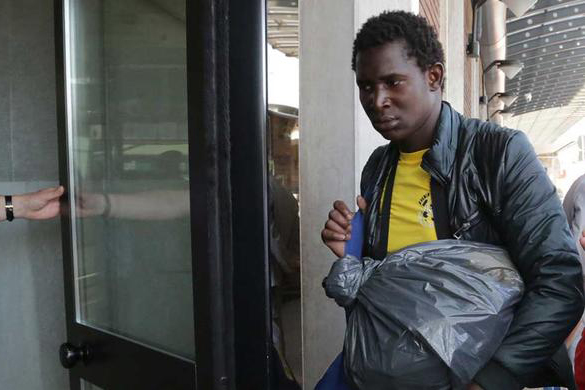CHURCHES IN BRIEF

Switzerland: the bishops’ appeal for refugees Swiss bishops renewed their appeal to help “all those in situations of misery and anguish” caused by forced migration. The appeal was launched in Givisiez, in the canton of Fribourg, at the end of the Plenary Assembly of the Bishops’ Conference, held from 31 August to 2 September. Various themes on the agenda: in particular the bishops discussed migration, the next Synod on the family and elected the next president of the Bishops’ Conference for the period 2016-2018, Msgr. Charles Morerod, bishop of Lausanne, Geneva and Fribourg. Speaking of migration the bishops underlined the “tragic events” taking place in various parts of the world and thus also in Europe. However, they pointed out, only a fraction of people on the move or on the run from their home countries manage to reach Europe. Migration also knocks at the doors of the Confederation: “It is a situation – the bishops write – that challenges the humanitarian tradition of Switzerland”. The bishops recalled the value of solidarity and the commitment to save human lives, voicing their strong support to the initiatives undertaken by Caritas Switzerland. Hungary: the bishops’ statement on migrants “The Hungarian Bishops’ Conference calls upon Catholic charitable institutions – in line with what has already been asked by Pope Francis – to find the most effective ways to provide assistance in collaboration with government agencies for the events happening in the country, while respecting the specific rights of this humanitarian situation”, reads a “Declaration on the situation of refugees” published September 3rd, adopted during the autumn session of the Hungarian Bishops’ Conference (Budapest, 1-2 September). During the plenary assembly the bishops elected the bishop of Szombathely, Andras Veres, as president of the Bishops’ Conference, as the cardinal of Budapest Peter Erdö, also CCEE president, has completed his 5-year term. CCEE: “Hope in Europe is still possible” The publication “Ecclesia in Europa 2015”, a collection of news and information on the past 12 years of activity of bishops’ conferences and institutions of the Catholic Church in Europe is available online on the website of the Council of the Bishops’ Conferences of Europe (www.ccee.eu) The 127 page-journal in Italian and English is meant as a tool “to respond to the information needs of the bishops in Europe”, pointed out Mons. Duarte da Cunha, CCEE Segretary General, in the release announcing its publication. The document equally highlights that the European Church “despite the diversity of the realities and situations in which she operates, and the issues she has to face, comes up as a one and single reality”, underlines Msgr. Da Cunha, “united across the economic, political, or cultural borders”. This “annual report of the Church in Europe”, summarizes the editorial titled “Hope in Europe is possible”, shows that “Christianity is alive” and that “the communities’ Christian witness thrives in many places”. Comece: on Europeinfos security and “Laudato si” The latest issue of Europeinfos, the monthly newsletter of the Commission of the Bishops’ Conferences of the EU, after the summer break returns online today in three languages (http://www.europe-infos.eu) with a focus on issues related to foreign affairs of the EU. The editorial is dedicated to the topical question of peoples knocking at the doors of Europe, while in an editorial Stefan Lunte, secretary of Justitia et Pax Europe, Comece contributor, illustrates European bishops’ encouragement to relaunch a “common security and defence policy”, along with the “proposal to create a European Union of defence” with the definition of “permanent structured cooperation”, widely demanded and now entrusted to High Commissioner Mogherini. Europeinfos also broaches the theme of European neighbourhood policies, also under revision, highlighting the need that they be enshrined within a “human dimension”, through an “inclusive dialogue process” that includes “all levels of society”. The newsletter features reflections ahead of the environmental summit in Paris with an account of the ongoing pilgrimage Flensburg-Paris and a new reflection on the encyclical “Laudato si'” in response to criticism of Pope Francis addressed by certain areas of Catholicism (North-American and Australian in particular) depicting him as an “environmental populist”.